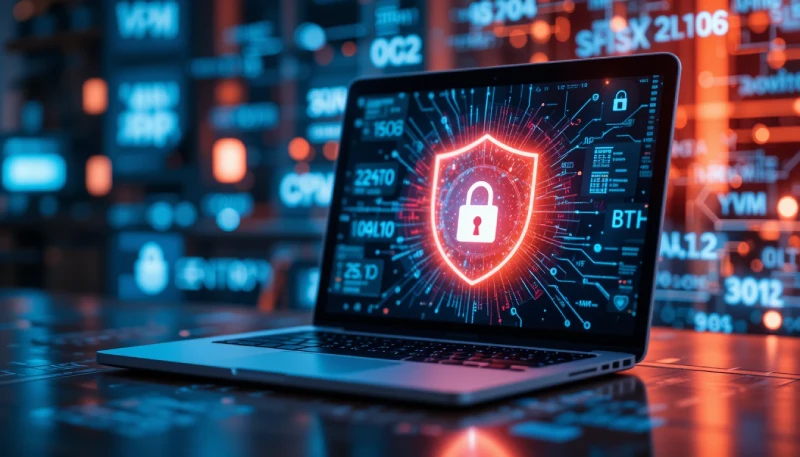How VPN Enhance Online Privacy Protection: A Complete Guide

Discover how VPN enhance online privacy protection by masking your IP, encrypting data, bypassing restrictions, and preventing tracking. Stay safe online!
In today’s digital world, privacy is no longer just a luxury, it’s a necessity. With the rise of cybercrime, government surveillance, and the vast amount of data collection by companies, ensuring our online privacy has become one of the most pressing concerns.
This is where VPN (Virtual Private Networks) come into play. So, how VPN enhance online privacy protection? A VPN works as a shield, safeguarding your personal information from potential threats.
Whether you’re browsing social media, shopping online, or working remotely, the need for protecting sensitive data has never been greater.
But how exactly does a VPN enhance online privacy protection? Let’s explore this in detail and uncover how a simple tool can revolutionize the way you experience online security.
How VPN Enhance Online Privacy Protection
VPNs offer several features designed to protect your online privacy. Let’s break them down:
1. Encryption

Encryption is one of the most powerful tools that VPNs offer to enhance online privacy protection. When you connect to the internet through a VPN, your data gets encrypted.
This means that any data you send or receive is transformed into an unreadable format. Even if hackers manage to intercept your data, they won’t be able to make sense of it.
Encryption ensures that your private information, such as passwords, credit card details, and personal messages, stays hidden from prying eyes. It’s like sending a secret message in a locked box that only you can unlock with a special key.
2. Hiding IP Address
Every device connected to the internet has a unique identifier called an IP address. This address can be used to track your online activities, your location, and even your internet service provider (ISP). By using a VPN, your real IP address is hidden. Instead, you are assigned a new IP address from the VPN server, which could be located anywhere in the world.
This not only protects your privacy but also makes it difficult for websites and third parties to track your browsing habits. It’s like wearing an invisibility cloak while online, so no one can see what you’re up to.
3. Bypassing Censorship and Geo-restrictions
One of the key reasons people turn to VPNs is the ability to bypass geo-restrictions. Many websites, streaming services, and social media platforms limit access based on your geographical location. However, with a VPN, you can choose the server location you connect to, making it appear as though you are browsing from a different country.
This feature is especially useful for accessing region-locked content like Netflix shows, sports events, or news outlets. In countries with heavy internet censorship, a VPN provides a way to bypass government-imposed restrictions and access the open internet.
4. Preventing Tracking
Every time you visit a website, tracking technologies like cookies and web beacons are used to gather information about you. This data can then be used to create a detailed profile, which is often sold to advertisers. VPNs help prevent these tracking techniques from working by masking your IP address and encrypting your traffic.
With a VPN, you have more control over your online presence. By stopping third parties from collecting data about your browsing habits, you reduce the chances of being bombarded with unwanted ads and having your personal information exploited.
5. Avoiding Government Surveillance
Governments around the world monitor their citizens’ online activities, sometimes even without a clear legal reason. In certain countries, people are routinely monitored for political dissent, activism, or even just for accessing certain websites. A VPN is one of the most effective tools to protect yourself from government surveillance.
By encrypting your connection and masking your real location, a VPN makes it incredibly difficult for government agencies to track your online activities. This ensures that your privacy remains intact, even in highly restrictive environments.
Conclusion
In summary, How VPN Enhance Online Privacy Protection is more than just a technical question. VPNs offer a range of features—from encryption and hiding your IP address to bypassing restrictions and preventing tracking—designed to make your online experience safer and more private.
With increasing online threats and privacy breaches, using a VPN has become an essential tool for anyone who values their security on the internet.
For those looking to take control of their online privacy, VPN services like UsageVPN.com offer trusted, reliable solutions. The next step is to start using a VPN today and experience a safer, more secure online journey.
Remember, in the digital age, privacy is power, and a VPN is your key to protecting it.
Q&A
How VPN Enhance Online Privacy Protection through Encryption?
VPNs protect your data by encrypting it, turning it into an unreadable format that only you can decrypt.
How does Hiding your IP Address with a VPN help in protecting your privacy?
A VPN hides your real IP address, making it difficult for websites and third parties to track your location and online behavior.
How does Bypassing Censorship and Geo-restrictions with a VPN work?
VPNs allow you to choose your server location, giving you access to region-restricted content and bypassing censorship barriers.
How does Preventing Tracking by using a VPN enhance privacy protection?
By masking your IP address and encrypting your traffic, VPNs prevent third parties from tracking your online activities.
How does Avoiding Government Surveillance with a VPN benefit online privacy?
VPNs encrypt your connection and mask your location, protecting you from government surveillance and ensuring your privacy.
